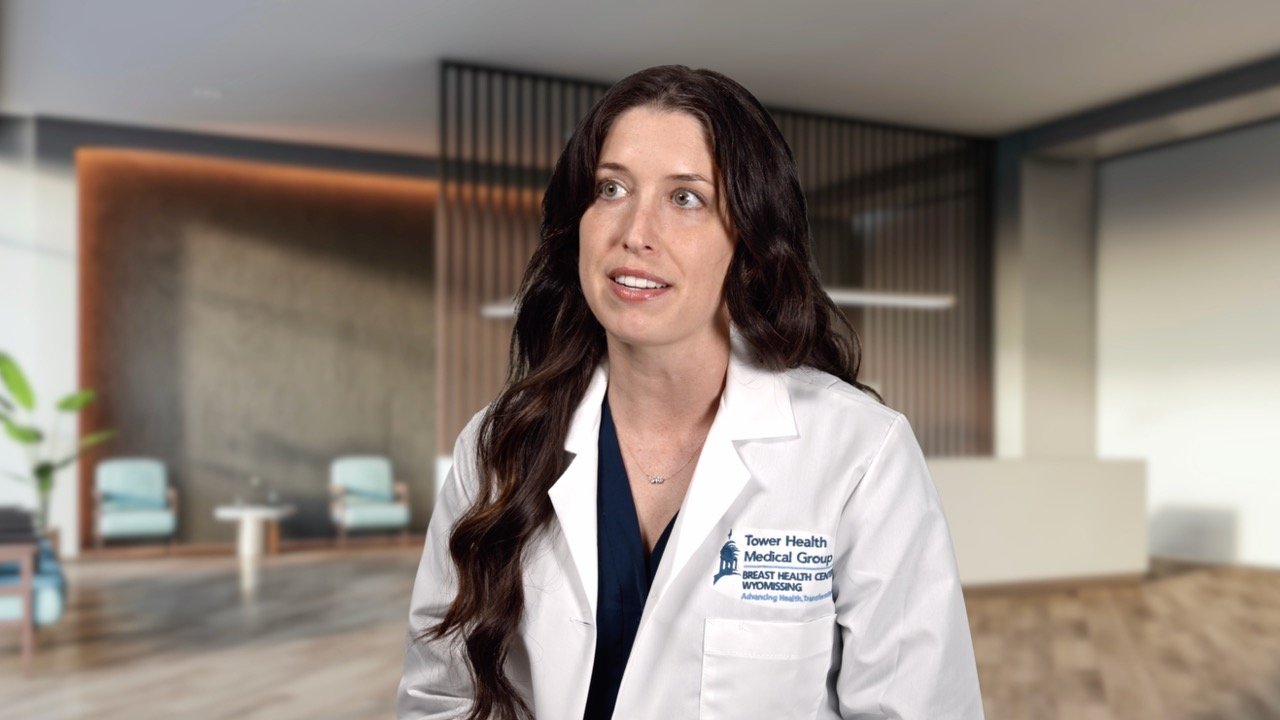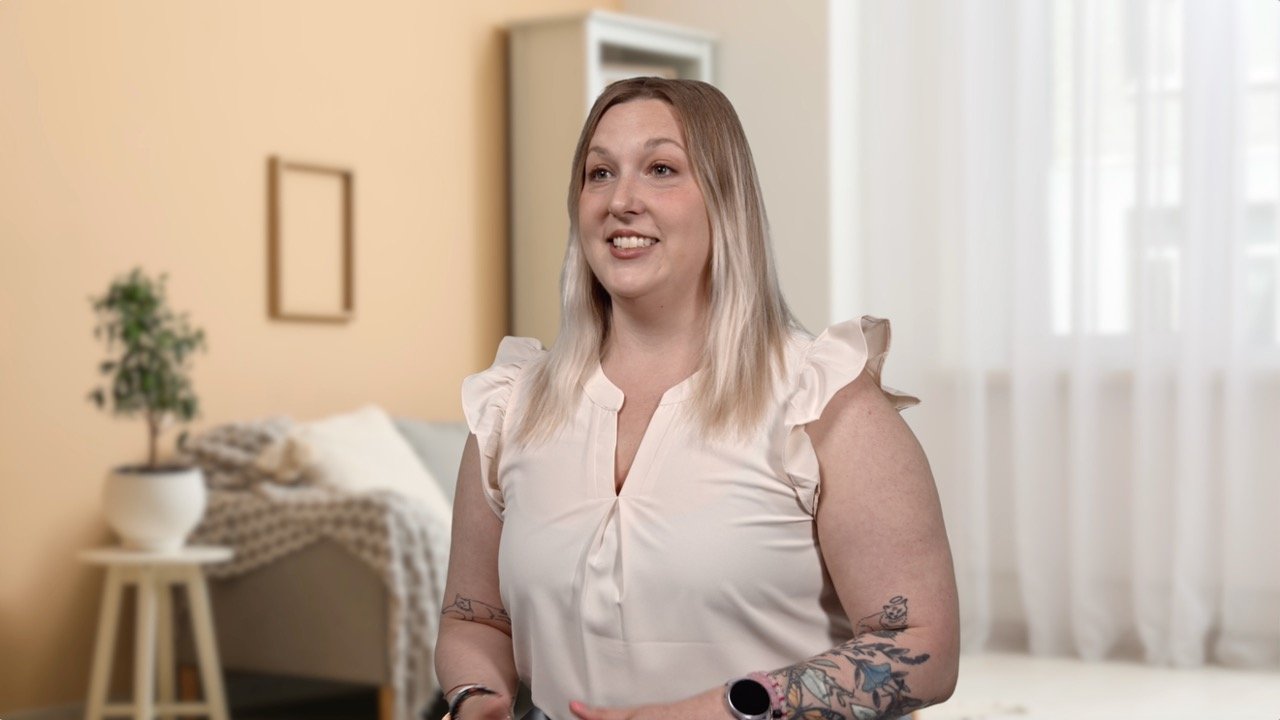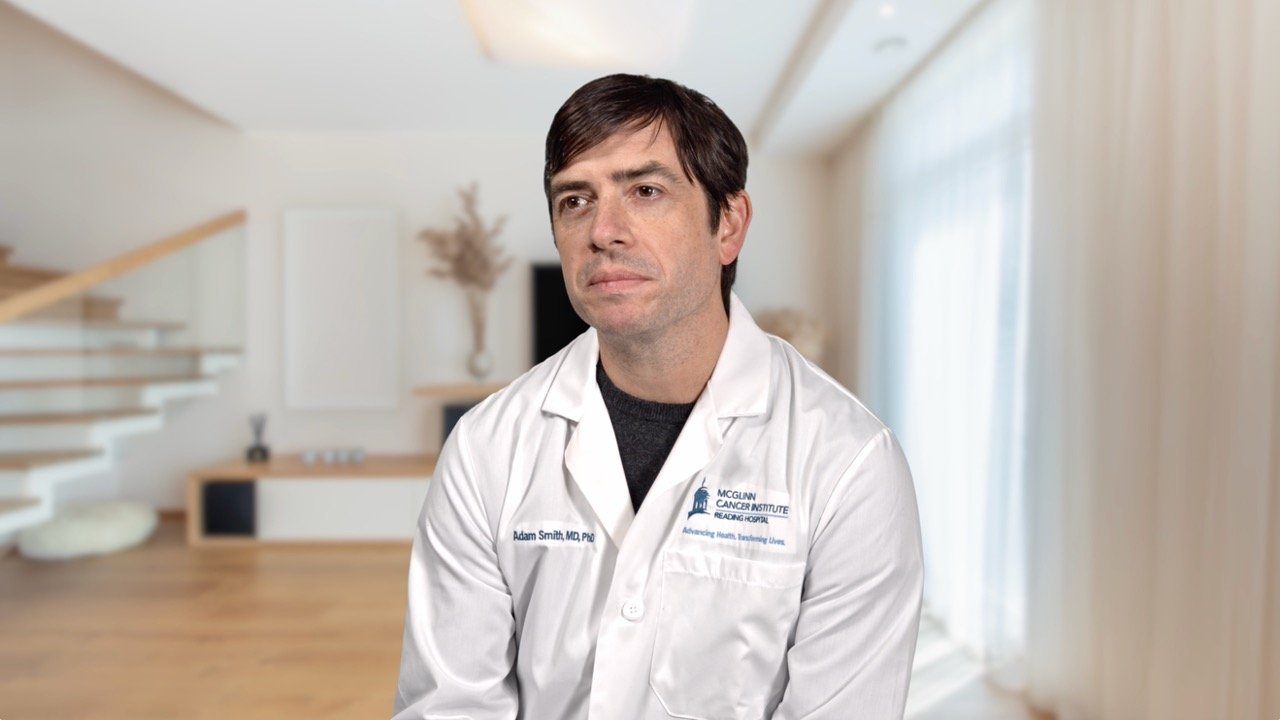
Manny Abreu Urges Cancer Patients to Never Give Up
It started with a secret that Amauris “Manny” Abreu tried desperately to hide. But Manny’s wife, Kathia Caraballo, had noticed the changes—his frequent, urgent trips to the bathroom, and times he didn’t make it there in time.
Embarrassment kept him silent, even from his wife.
“I would ask him over and over what was wrong,” Kathia recalled. “But he wouldn’t tell me.”
What she didn’t know was that he had taken to sleeping with towels between his legs, silently enduring his body’s betrayal.
One morning, Kathia woke early, pulled the covers away, and in confusion began poking at the damp towels around her husband.
Manny looked at her in tears.
It was time to seek help.
Close to Death, and a Diagnosis
After a doctor checked him out and ran some tests in September 2024, Kathia tried to take Manny’s mind off his puzzling health concerns with lunch at a restaurant. Meanwhile, a medical team was reviewing his test results.
During lunch, Manny’s phone rang three times. He ignored it.
After lunch, when he checked his messages, a voicemail instructed him: “Wherever you are, go to the nearest emergency room right now. You are close to kidney failure.”
Manny objected, telling his wife he didn’t want to go to a hospital.
She pleaded with him, emphasizing that his kidneys were close to shutting down.
So they went to a nearby hospital, and a catheter was inserted. An attached bag filled almost instantly with blood and urine.
His kidney function was less than 10 percent.
The attending doctor told him, “Be glad you’re here because you were almost in kidney failure. You would have died.”
In November, Manny sought reasons for the cause of his kidney problems. But it wasn’t until January, at Reading Hospital’s McGlinn Cancer Institute, that he finally heard the truth: Stage 4 prostate cancer.
Manny sought a second opinion at yet another hospital, and there they told him to go back to Reading Hospital and get treated at McGlinn Cancer Institute, saying, “They do a really good job.”
Looking back, Manny realizes he had probably been Stage 2 only a few months earlier.
Still, he had a second chance to fight. The cancer was aggressive. Advanced. But not unbeatable.
He went back to McGlinn, and Manny was ready.
“If there’s something wrong with your body, it’s not normal. Please don’t stay home,” Manny now urges others. “Don’t wait.”
Trust in Treatment
When his medical team explained his upcoming treatment regimen, Manny beamed and said, “Let’s do this.”
McGlinn began with precision radiation, targeting the cancer directly. Manny describes the experience as surprisingly serene: “Every time I got into the machine, I fell asleep. They played beautiful music. I just relaxed.”
Half of his body remained outside the machine, but inside of him, the team worked with pinpoint accuracy, aiming to save his life.
The staff’s advice was simple and powerful: Relax. Don’t think negative thoughts. Let the machine, and the people behind it, do their job.
Manny listened. And trusted.
“The people at McGlinn make you feel like family,” he said. “They really care.”
Trust paid off. After treatment, scans showed no signs of cancer.
“For right now, it’s clear,” Manny said with a smile. “And we hope it stays like that for the rest of my life.”
But his journey wasn’t just about his own survival. Manny turned his pain into purpose. He reassured fellow patients, including one man visibly shaking before his first treatment.
“I told him, ‘We have to do this,’” Manny recalled. Weeks later, he overheard that same man comforting another frightened patient with the same words Manny had used.
The ripple effect of hope had begun.
Manny, 56, a chef at Tower Behavioral Health and Santander Arena, comes from a family touched deeply by cancer. His father and aunt also received successful care at McGlinn.
He knows the importance of early action, especially within the Latino community.
“Many Latinos don’t trust doctors,” he said. “They stay home and try home remedies. But you have to act. You have to move fast before the cancer moves faster.”
Throughout it all, Manny’s spirit remained unbreakable.
Kathia, 31, a cancer survivor herself, marveled at his resilience.
“During treatment, Manny was always smiling,” she said. “He’s so strong. He said, ‘I’m going to beat this,’ and he did. If you take the negative view, you’re not going to see how bright it is at the end.”
Manny’s journey is a story of survival. And love.
His wife, Kathia, was diagnosed with endometrial cancer at just 25. She endured a hysterectomy to save her life.
She had objected to the procedure, saying she wanted to have children.
But a doctor told her, “If you keep your uterus, you’ll only have seven months to live.”
Together, Manny and Kathia know what it means to fight. To sacrifice. To overcome.
Manny’s message to cancer is clear:
“Dear Cancer: You tested me, but I turned pain into purpose.”
And today, with Kathia by his side and a grin on his lips, Manny is still cooking up hope, one day at a time.
He has this to offer others facing a cancer diagnosis: “Don’t give up. Keep fighting. You have to fight the cancer and not let the cancer fight you.”
More "Dear Cancer" Stories

"Dear Cancer: It’s Your Turn to Give Back.”
From giving patients her personal cell number to celebrating their wins, Dr. Kendra Winter is changing the story of breast cancer, one life at a time.

“Dear Cancer: You Can’t Break Me.”
At just 34, Ramah was diagnosed with triple-negative breast cancer, the same aggressive type her mother battled years earlier.

“Dear Cancer: You’ve Got a Fight on Your Hands.”
With a PhD in computational chemistry and a deeply personal motivation rooted in the loss of his father to cancer, Dr. Adam Smith brings both scientific precision and heartfelt compassion to every patient he treats.
Make an Appointment
Cancer may change lives, but it doesn’t have to define them.
